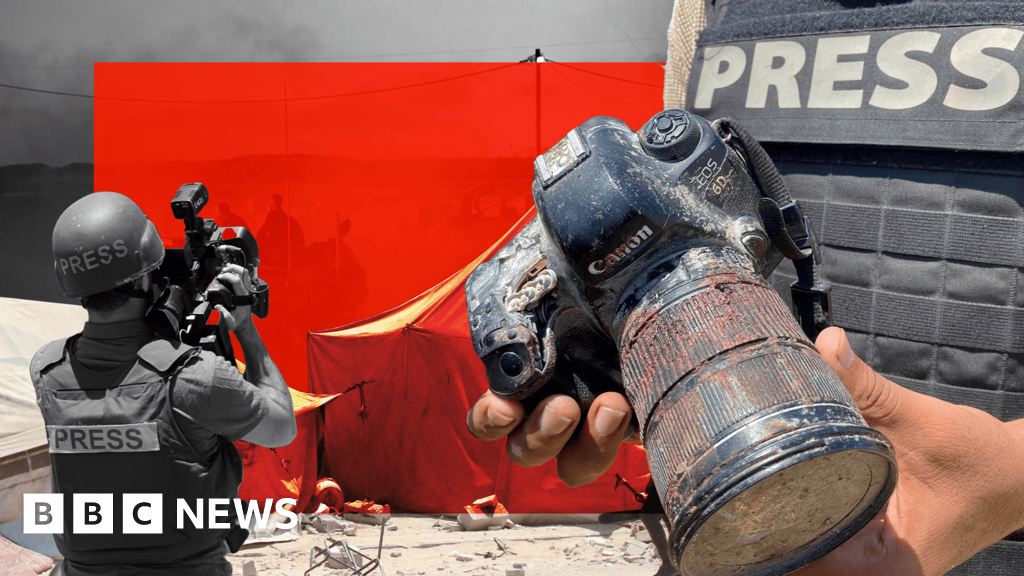I never imagined that one day I would be living and working in a tent, deprived of the most basic human necessities - even water and a bathroom. It's more like a greenhouse in the summer and a refrigerator in the winter, journalist Abdullah Miqdad told the BBC. After 22 months of war in Gaza, most journalists find themselves working in tents around hospitals in order to access the electricity and reliable internet connection they need to do their jobs.
Power has been cut off across Gaza, so hospitals, whose generators are still functioning, provide the electricity to charge phones and equipment, and offer high points with better mobile reception.
However, working at hospitals has not afforded them safety; Israeli strikes on hospitals and their compounds have resulted in journalists losing their lives during the conflict.
On Monday, five journalists were among at least 20 people killed in a double Israeli strike on Nasser hospital in the southern city of Khan Younis. International news outlets, including the BBC, rely on local reporters within Gaza as Israel does not allow them to send journalists into the territory except on rare occasions when they are embedded with Israeli troops.
The risk for reporters is exacerbated by ongoing threats; at least 197 journalists and media workers have been killed since the war began, particularly impacting Palestinians working in Gaza. Ahed Farwana from the Palestinian Journalists Syndicate expressed that they feel constantly targeted, leading to perpetual fear for their lives. The past two years have not only exhausted their physical endurance but also deeply affected their mental health and community ties.
They are compelled to cover harrowing stories day in and day out, some alongside colleagues who have been killed, as they struggle against hunger and displacement themselves. As Ghada Al-Kurd remarked, The war has changed our psyches and personalities. We will need a long period of healing to return to who we were before.
This harrowing reality faced by journalists in Gaza underscores not only the dangers of their profession in conflict zones but also the existential threats they navigate as they strive to bring vital stories to the world.
Power has been cut off across Gaza, so hospitals, whose generators are still functioning, provide the electricity to charge phones and equipment, and offer high points with better mobile reception.
However, working at hospitals has not afforded them safety; Israeli strikes on hospitals and their compounds have resulted in journalists losing their lives during the conflict.
On Monday, five journalists were among at least 20 people killed in a double Israeli strike on Nasser hospital in the southern city of Khan Younis. International news outlets, including the BBC, rely on local reporters within Gaza as Israel does not allow them to send journalists into the territory except on rare occasions when they are embedded with Israeli troops.
The risk for reporters is exacerbated by ongoing threats; at least 197 journalists and media workers have been killed since the war began, particularly impacting Palestinians working in Gaza. Ahed Farwana from the Palestinian Journalists Syndicate expressed that they feel constantly targeted, leading to perpetual fear for their lives. The past two years have not only exhausted their physical endurance but also deeply affected their mental health and community ties.
They are compelled to cover harrowing stories day in and day out, some alongside colleagues who have been killed, as they struggle against hunger and displacement themselves. As Ghada Al-Kurd remarked, The war has changed our psyches and personalities. We will need a long period of healing to return to who we were before.
This harrowing reality faced by journalists in Gaza underscores not only the dangers of their profession in conflict zones but also the existential threats they navigate as they strive to bring vital stories to the world.


















